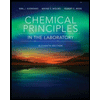![OWLv2 with LabSkills for Gilbert/Martin's Experimental Organic Chemistry: A Miniscale & Microscale Approach, 6th Edition, [Instant Access], 4 terms (24 months)](https://s3.amazonaws.com/compass-isbn-assets/textbook_empty_images/large_textbook_empty.svg)
a)
Interpretation: Effect of removal of solvent at temperatures below their normal points with help of rotary evaporator should be determined.
Concept introduction: Rotary evaporator is laboratory apparatus that is used to remove solvents with help of reduced pressure. This is designed in such way that allows fast evaporation of solvents. A variable-speed motor is used for rotation of flask that has solvent to be evaporated.
b)
Interpretation: Preference of rotary evaporation distillation over simple distillation should be determined.
Concept introduction: Rotary evaporator is laboratory apparatus that is used to remove solvents with help of reduced pressure. This is designed in such way that allows fast evaporation of solvents. A variable-speed motor is used for rotation of flask that has solvent to be evaporated.
Trending nowThis is a popular solution!

Chapter 4 Solutions
OWLv2 with LabSkills for Gilbert/Martin's Experimental Organic Chemistry: A Miniscale & Microscale Approach, 6th Edition, [Instant Access], 4 terms (24 months)
- Determine the rate law for sodium thiosulfate from the following data: [Na2S2O3] Time (s) 0.0318 230. 0.0636 57.5arrow_forwardDon't used hand raiting and don't used Ai solutionarrow_forwardDetermine the rate order from the following data: [Na2S2O3] Time (s) 0.0455 M 180.0 0.0909 M 90.0 0.136 M 60.0 Group of answer choices First order Second order Third order Zero orderarrow_forward
- Write down by equation of the following reactions: the Clemmensen reduction and synthesize of a secondary alcarrow_forwardPropose syntheses of the following compounds starting with benzene or toluene. Assume ortho and isomers can be separated. a. b. O₂N- Cl COOH para 0. Propose syntheses to carry out each of the following conversions. Assume ortho and para isomers can be separated a. Br b. COOH CH3 NH₂ PABA (active ingredient in some sunscreens)arrow_forwardH3C H C=C CH3 H m-chloroperoxybenzoic acid CH2Cl2, rt C-C--. H3CH2CC H H3C CH3 Cl₂ H₂O NaOH H₂O D. S- E. CH3 H₂O₂, H₂O It CH₂O Na + CHI F. HI, H₂O heat G. 4 OH CH3CHCH3 + ICH2CH3 1. NaH (CH3)3COH (CH3)3 COCHCH2CH3 2. CH3arrow_forward
- 5. Show how the ether below could be prepared from toluene and any other necessary reagents. Show all reagents and all intermediate structures. H3C- H3C- CI OCH2CH3arrow_forwardGiven the major organic product(s) of each of the following reactions. If none is predicted, write "N.R." [answer 61 a. b. H3C C. NO₂ CH3CH2CH2Cl AICI 3 1) NaOH CI 2) H3O+ NO₂ 1. SnCl2, H3O+ 2. NaOH 3arrow_forwardPlease correct answer and don't used hand raitingarrow_forward
- To answer the following questions, consider the reaction below: CH3 . CH3 OH a. The best reagents for accomplishing the above transformation are.... a. 1. OsO4, pyridine 2. NaHSO3, H₂O b. 1. Hg(OAc)2, H₂O 1. C. 2. NaBH4 RCO₂H, CH2Cl₂ 2. H₂O* d. 1. BH3, THF 2. H₂O₂, OH b. The alcohol product is classified as a: a. 1° alcohol b. 2° alcohol C. 3° alcohol d. 4° alcohol c. The conversion of an alcohol into an alkyl chloride by reaction with SOCI2 is an example of: a. b. ن نخنه C. d. an El process an Syl process an E2 process an Sy2 processarrow_forwardEstimation of ash in food Questions: Q1: What does the word ash refer to? Q2: Mention the types of ash in food Q3: Mention the benefit of using a glass dryerarrow_forwardDraw structures corresponding to the names given a. m-fluoronitrobenzene b. p-bromoaniline c. o-chlorophenol d. 3,5-dimethylbenzoic acidarrow_forward
 Macroscale and Microscale Organic ExperimentsChemistryISBN:9781305577190Author:Kenneth L. Williamson, Katherine M. MastersPublisher:Brooks Cole
Macroscale and Microscale Organic ExperimentsChemistryISBN:9781305577190Author:Kenneth L. Williamson, Katherine M. MastersPublisher:Brooks Cole Chemistry: Principles and PracticeChemistryISBN:9780534420123Author:Daniel L. Reger, Scott R. Goode, David W. Ball, Edward MercerPublisher:Cengage Learning
Chemistry: Principles and PracticeChemistryISBN:9780534420123Author:Daniel L. Reger, Scott R. Goode, David W. Ball, Edward MercerPublisher:Cengage Learning Chemical Principles in the LaboratoryChemistryISBN:9781305264434Author:Emil Slowinski, Wayne C. Wolsey, Robert RossiPublisher:Brooks Cole
Chemical Principles in the LaboratoryChemistryISBN:9781305264434Author:Emil Slowinski, Wayne C. Wolsey, Robert RossiPublisher:Brooks Cole



